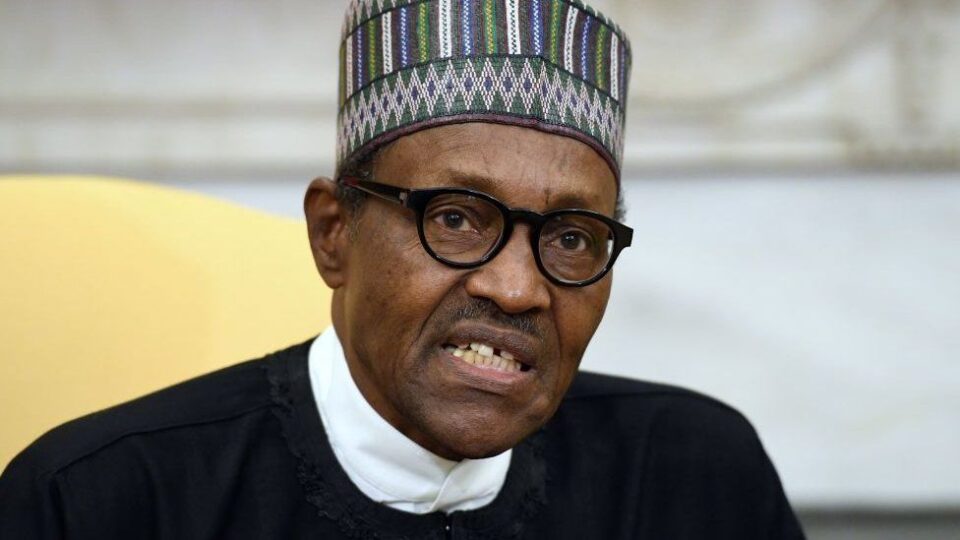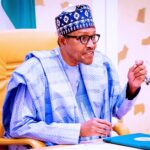*Solid minerals development also in focus
By Chesa Chesa
Exactly seven years after mounting the saddle of leadership in Nigeria, President Muhammadu Buhari and his administration has chalked up some notable milestones in different sectors of the country’s life. Even if he says so himself, he equally admits that there are areas where much work is still to be done, with 12 months remaining of his eight years of two two-term presidency.
Having also made himself the nation’s Minister of Petroleum Resources for all these seven years, it won’t be a surprise to see the Buhari government talk enthusiastically about the achievements recorded in the petroleum industry. He can lay claim to having a soft spot for the oil and gas sector. His signing of the Petroleum Industry Bill (PIB) into law to become the Petroleum Industry Act (PIA) remains a historical moment, despite the controversies that trailed it. Inroads have also been made in revitalising the solid minerals sector to diversify revenues away from the oil industry.
President Buhari’s assent to the Petroleum Industry Act on August 16, 2021 broke a two-decades-old jinx and is setting the stage for the unprecedented transformation of Nigeria’s oil and gas sector.
Under the new Act, the NNPC has transformed into a Limited Liability Company which will be formally unveiled by the President in July 2022.
The regulatory framework for the sector has also changed, with the establishment of (a) the Nigerian Upstream Petroleum Regulatory Commission (NUPRC), and (b) the Nigerian Midstream and Downstream Petroleum Regulatory Authority (NMDPRA), which merged the hitherto-existing Petroleum Products Pricing Regulatory Agency (PPPRA), Petroleum Equalization Fund (Management) Board(PEFMB), and the Midstream and Downstream Divisions of the Department of Petroleum Resources (DPR).
Also notes is the historic signing ceremony, in May 2021, of the Execution of Oil Mining Lease (OML) 118 Agreements between NNPC Limited and its Contractor Partners: Shell, Exxon Mobil, TOTAL and NAOC. These Agreements settled long-standing disputes that stalled development, and will unlock more than $10 billion of new deep-water investment in Nigeria.
With particular focus on gas, the Buhari administration has declared this decade the “Decade of Gas”; and this has come with the following investments in the gas sector:
– Construction ongoing on the 614km Ajaokuta-Kaduna-Kano Gas Project, the largest domestic gas project in the country.
– US$45 million financing secured from the Islamic Development Bank, for the Front-End Engineering Design (FEED) Study for the Nigeria–Morocco Gas Pipeline (NMGP) project.
The Agreement for the pipeline project was signed by the two countries during President Buhari’s State Visit to Morocco in June 2018. When completed it will be the longest offshore pipeline in the world, and the second longest pipeline in the world, running across 13 countries, 11 of them in West Africa.
– Successful completion of Nigeria’s first Marginal Field Bid Round in almost 20 years, expected to raise in excess of half a billion dollars, and open up a new vista of investment in oil and gas.
– Launch of National LPG Expansion Programme (including Removal of VAT from the domestic pricing of LPG)
– Financial close and signing of contract for NLNG Train 7, which will grow Nigeria’s LNG production capacity by 35% – Nigeria and Morocco in 2021 signed an agreement to develop a US$1.4 billion multipurpose industrial platform (Ammonia and Di-Ammonium Phosphate production plants) that will utilize Nigerian gas and Moroccan phosphate to produce 750,000 tons of ammonia and 1 million tons of phosphate fertilizers annually by 2025. It will be located in Ikot-Abasi, Akwa-Ibom State.
– Commissioning, in December 2020, of the new NPDC Integrated Gas Handling Facility in Edo State, the largest onshore LPG plant in the country, with a processing capacity of 100 million standard cubic feet of gas daily, producing 330 tonnes of LPG, 345 tonnes of propane and 2,600 barrels of condensate, daily.
– Establishment of a $350m Nigerian Content Intervention Fund, to finance manufacturing, contracts and assets in the oil and gas industry
– The NNPC Limited’s National Petroleum Investment Management Services (NAPIMS) became, in 2022, the first Government organization in West and North Africa to receive the ISO 22301:2019 Certification for Business Continuity Management from RINA.
Of course, such investments come with huge financial challenges and commitments. Efforts towards bridging the gap have been yielding some fruits.
Afreximbank announced in January 2022 that it will assist NNPC Limited to raise $5 billion financing to support investments in Nigeria’s upstream industry, and facilitate expanded energy supply. Afrexim also disclosed plans to underwrite $1 billion of the total planned debt.
Final Investment Decision in January 2021 on a 10,000 tonnes per day methanol plant and a 500 million standard cubic feet per day gas processing plant, being promoted by the NNPC Limited and the Nigerian Content Development and Monitoring Board (NCDMB), in partnership with the private sector. The plant is now under construction in Odeama, Brass, Bayelsa State.
The ANOH gas processing plant, with a processing capacity of 300 million standard cubic feet of gas, in Imo State. It is a Joint Venture between Seplat Petroleum Development Company and the Nigerian Gas Company, a wholly owned subsidiary of Nigerian National Petroleum Corporation (NNPC). It also has the potential to deliver 1,200MW of power when completed.
Comprehensive Rehabilitation of the Port Harcourt Refinery (PHRC). Sign-off Ceremony of Engineering, Procurement & Construction (EPC) Contract held in April 2021, marking the commencement of site handover and full mobilization to site.
Policy, Regulatory and Funding Support for the establishment of Modular Refineries across the Niger Delta is what the government has also pursued. When the Buhari administration took office in 2015 Nigeria had only one functioning Modular Refinery.
Today there are no fewer than six ongoing brownfield and greenfield Modular Refinery Projects across the Niger Delta. In 2020 President Buhari commissioned the first phase of the Waltersmith Modular Refinery, in Imo State, and broke ground on Phase 2, which will add 20,000bpd processing capacity.
The Nigerian National Petroleum Corporation (NNPC) on Tuesday, December 21, 2021, handed over a symbolic cheque of N621.24 Billion for the rehabilitation of 21 critical roads (totalling 1,800km) across the country, through the Road Infrastructure Tax Credit Scheme under the Executive Order 7 signed by President Muhammadu Buhari in 2019. This, however, does not mean that NNPC has gone into the business of constructing roads, instead it is financing the construction of roads, through its tax liabilities.
The launch of the Nigerian Upstream Cost Optimization Programme (NUCOP), to reduce operating expenses through process enhancement and industry collaboration, has an overall target to achieve a $10 or less per barrel production cost.
For the solid minerals sector, there was approval in 2020 of a new national policy on local production of bitumen. In April 2022, the Federal Government announced the selection of PwC as Transaction Adviser for the concession process for Nigeria’s bitumen blocks. (Nigeria has one of the largest bitumen reserves in the world, mostly undeveloped).
The Presidential Artisanal Gold Mining Development Initiative (PAGMI) is a Buhari Administration scheme to enumerate (deploying BVN and NIN data), organize/formalize, ‘skill’, equip, and finance (by guaranteeing offtake—with fair pricing) artisanal gold miners in Nigeria.
Construction has been completed on the first phase of the Segilola Gold Project, Nigeria’s first large-scale commercial gold mine, and most advanced gold exploration project (also currently the largest defined gold deposit in the country). The private sector project, built during the pandemic, began exporting gold in late 2021.
In Kaduna, a $600 million integrated iron ore mining, processing and steel production company is being completed, in Gujeni, Kagarko LGA of the State – a wholly private sector investment.
Also, the Federal Government has licensed three companies to build the first set of gold refineries in Nigeria.
In 2020, the Central Bank of Nigeria (CBN) added Nigerian gold to its reserves for the first time.
Meanwhile, the Ministry of Mines and Steel Development has achieved the total automation and decentralization of the operations of the Mining Cadastre Office (MCO) while revitalising the Presidential Joint Task Force on Mines Surveillance.
There has also been enhanced operating capacity of the National Geosciences Research Laboratories (NGRL) in Kaduna, so that samples no longer need to be sent abroad for processing, as well as the operationalization of the Solid Minerals Development Fund (SMDF).
In 2018, the National Council on Mining and Mineral Resources Development was established in order to bring the Federal and State Governments together on same page concerning the sector.
The State Mineral Resources and Environmental Management Committees (MIREMCO) have been reactivated
This is addition to ongoing development of mining-related clusters in the six geopolitical zones of Nigeria, as part of the Federal Ministry of Mines and Steel Development’s Covid-19 economic intervention programme:
The mining clusters are Gold Souk in Kano State; Kaolin processing plant in Bauchi State; Gemstone market in Ibadan, Oyo State; Lead-smelting plant in Ebonyi State; Barite-processing plant in Cross River State; and Gold-smelting plant in Kogi State.
Hopefully, more results will be excavated in these sectors before the Buhari administration closes shop in May, 2023.


